When I was in high school in the early 90s, stable internet was a luxury. Modems made weird noises, Mp3 files took hours to download, and online gaming was still rare. I will never forget when I first saw another human player driving around in " my GTA1 city".

Local-Network games were the norm, though. We regularly organized LAN-Parties, we packed our bulky CRT monitors, towers & accessories, and we would emigrate to someone else's bedroom or basement for the weekend. We'd fight with BNC-terminators and later make our RJ45 plugs for straight and twisted cables. We'd learn how routers and switches do or do not work. And each session would start with us leeching each other's hard drives dry before playing until exhaustion.
One of the key elements was that someone was opening his or her world for all to profit. We met under the pretense of playing but exchanged lots of ideas. The groups were never quite the same, producing new connections and friendships.
Nowadays, I don't play much anymore. I still enjoy it, but don't take the time. My time goes into my family first, and then toward my podcast, personal development, coaching, and mentoring.
A few months ago, Scott Hanselman posted an article about hosting a mentorship meal. I loved the idea right away. It could be the crossing point of those nostalgic LAN-parties and the mentoring I love. I had to try.
Our first mentoring party
Here's how I pictured it: I invite 4-8 persons, people I admire, who are or could be mentors. As a host, I provide my living room, excellent food, and beverages. My guests are responsible for the rest.
But there is a twist. Each guest has a "+1" and has to come accompanied. Each of them has to invite another person who could profit from the mentorship, sponsorship, and networking. One hidden goal is for everyone to meet at least one person they wouldn't have met otherwise.
That's it.
Why in my living room?
Mentoring requires deep personal connections between the participants. And mentoring focuses on the person as a whole. By inviting people into your home, you draw a line in the sand and say:
"When I speak about mentoring, I see you as a person, and I show myself as a person. It is not just a 9-5 professional relationship. I'm helping you like I would help a friend."
You wouldn't want to meet your friends in a meeting room. For a serious talk, the calmness of your home trumps the loudness of a bar or a restaurant.
By showing your " other self", making yourself vulnerable, you invite others to do so as well. You thus lower the barrier to entry into mentoring for all.
Why excellent food and beverages?
Because I'm French! And because it feels good to treat people well! And of course, because of that very same line in the sand. This party is your way to say:
" I want people around me to grow. Their development is crucial to me. I want them to feel good, especially when I push them to think twice about their life in my living room ".
You are setting the tone. You are making people comfortable to open themselves and talk. Don't order pizzas. Instead, prepare something special. Make them feel special. Make the evening something special.
The pilot
I invited six persons, plus my first mentee, for a total of 14 persons. Unfortunately, there were a few last minute indispositions. We ended up being 8, which in fact, was a comfortable number to start with.
Due to this number of participants, the group's dynamic didn't go as I had envisioned. We talked as a group almost the whole time, leaving little to no room for bilateral discussions. The only ones who got alone-time were the masters of networking: the smokers.
I opened the evening with a short toast, explaining my mentoring journey. I told my guests how important it is for me to find mentors and mentees in their lives. And I thus rehashed the purpose of the evening why I had invited them to be here that evening.

Since one of my mentors and one of my mentees were present, they got to tell their mentoring stories. Some others joined in. Soon, every participant ended up relating their experience to the group.
It was the ideal setup to clarify terms and concepts:
- The difference between Mentoring and coaching.
- The specifics of a mentoring relationship.
- How such a relation starts.
- The necessity for mentoring
- ...
The discussion then evolved into broader experiences. We helped each other on topics other than mentoring. It ended up feeling like a group mentoring & coaching session. A few participants ended up asking quite personal questions, and we all tried to help them.
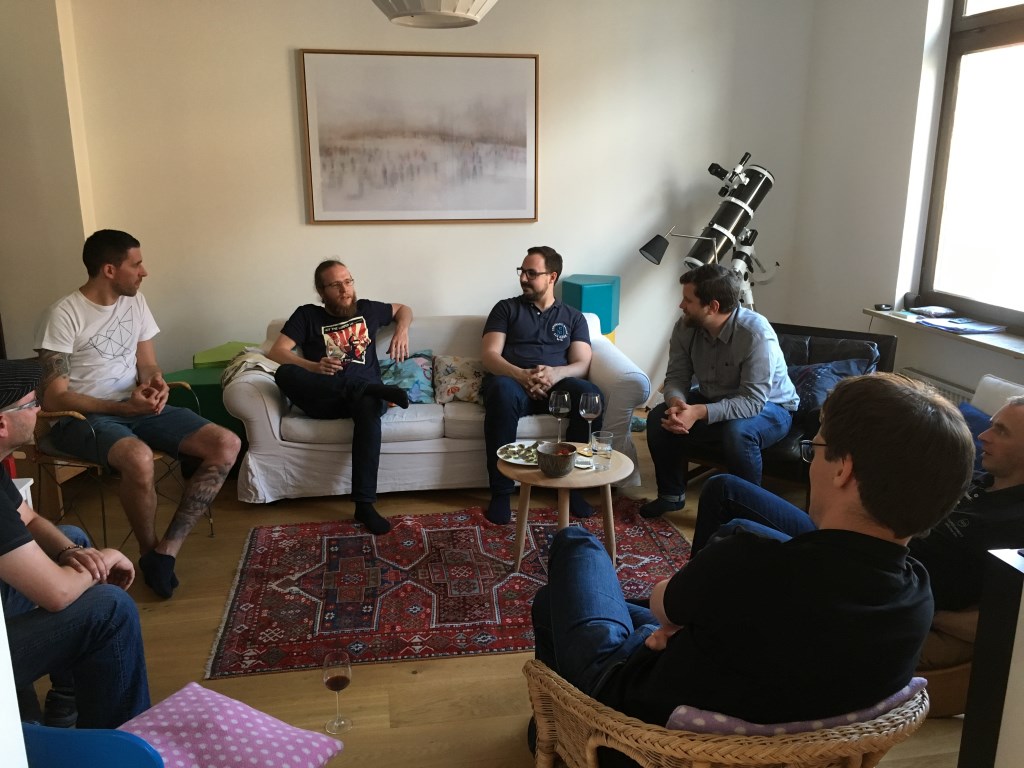
Then we got some crazy ideas. A few ideas involving public speaking. We talked about being visible as a mentor. We touched on cross-public-speaking between companies. We discussed reverse mentoring and much more. It amazes me how much can come out of a group when the people, the mindsets, and the context are right.
My father came from France to visit and was present during the last hour of the evening. His German is not good enough to understand the discussion, but he remained with us and used the exercise. The first thing he told me after the guests had left was something like:
Did you notice how calm they all were? No-one tried to get the upper hand over the others, and no-one was boasting. The tone remained friendly. People were listening to each other. And the tempo was pretty low, as if you were discussing complicated topics and requiring thinking time.
And he was right.
No mentoring-pair emerged from the evening. But I got eight persons to reflect on the concept of mentoring for 5 hours. Bingo!
Food for thoughts, food for the body
I'm sure you're wondering what we ate and drank since I put so much emphasis on it.
I made homemade black-olives tapenade, served on raw Zucchini slices for appetizers. I had brought a variation of 9 kinds of cheese back from Paris during my trip to NCrafts the week before. And for dessert, there was a self-made chilled "mousse-au-Chocolat"... which disappeared instantly.
All the while, we drank a rich red wine from the Pays d'Oc (South-west of France, on the Mediterranean side): "Domaine de La Clapière Gatefer" 2015.
I was unfortunately too slow to document the meal in pictures.
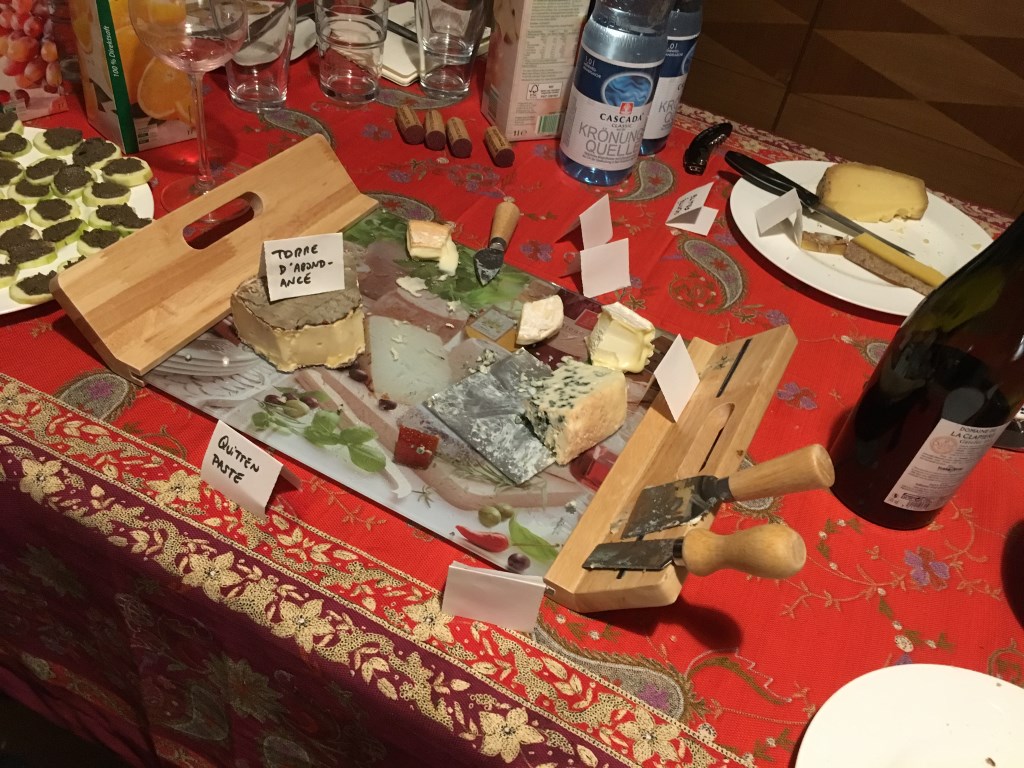
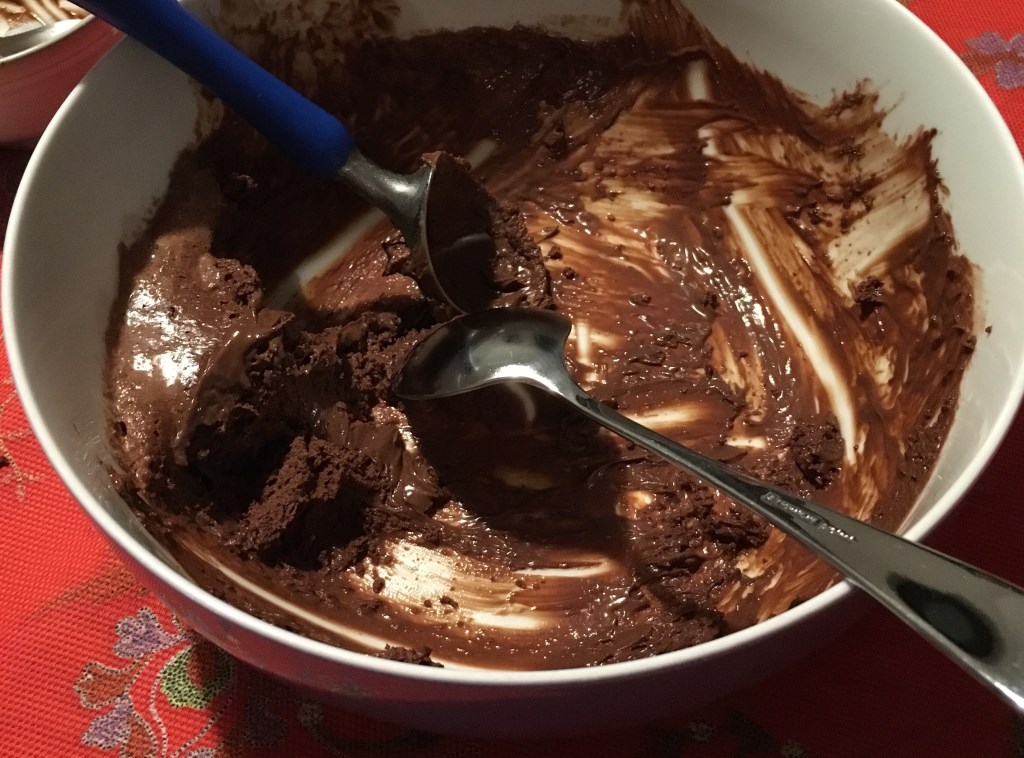
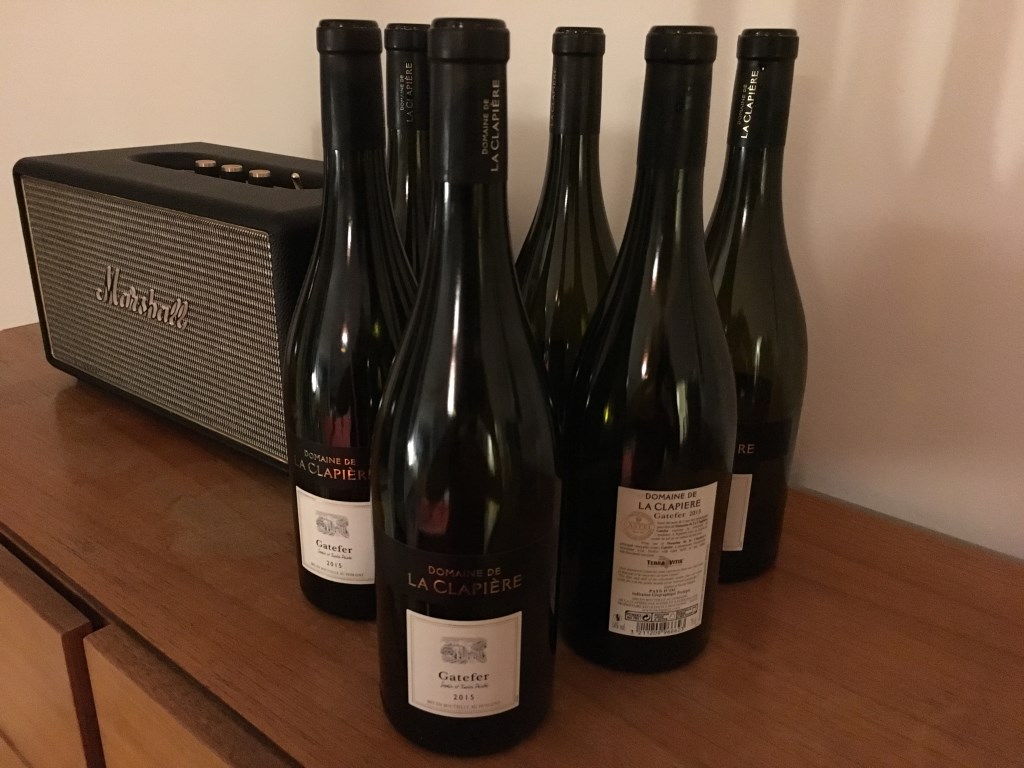
What I would do differently
I didn't do an "introduction round" at the beginning. I thought of introducing the "mentors" myself and let them present their guests. But I decided I didn't want to reinforce that difference between people. And since I didn't know all the guests myself, I couldn't do it for them.
I expected a breakout to happen very early, so I chose the lazy way out and didn't do an introduction round. In retrospect, I should have made a short round anyway. Maybe I could have asked everyone to present themselves with a haiku. Or a quick drawing exercise. Or have asked them to find an object in my living room that would represent them. Or merely a few words ;)
Closing
Before the guests left, I held a very short toast again. I thanked them for coming. I asked them to take this idea with them. I encouraged them to become hosts as well. My utmost desire is that one of them organizes such an event as well. And I wish some of my guests will be invited along with new guests and that the ball will keep on rolling.
Instead of a ROTI (Return On Time Invested) chart, we made an ROI (Return On Wine Ingested?) chart... which I had to make on a logarithmic scale to get the results on paper:
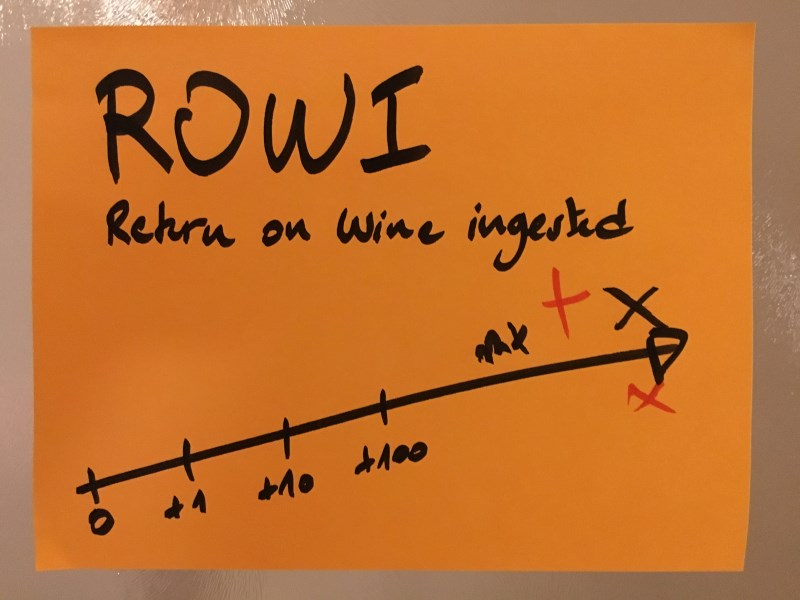
And while cleaning up the place afterward, I found those two Kudo cards on my desk. And it felt terrific.
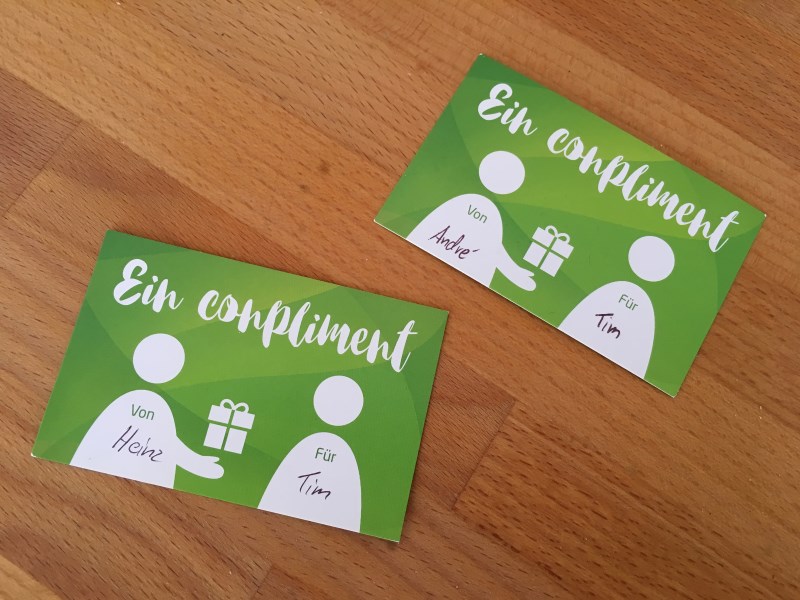
But how about trying it yourself? You now have all the necessary elements to kickstart your mentoring party! Organize the next one and then write down a few words to tell me how it went in the comments below.
Photo by Scott Warman on Unsplash



